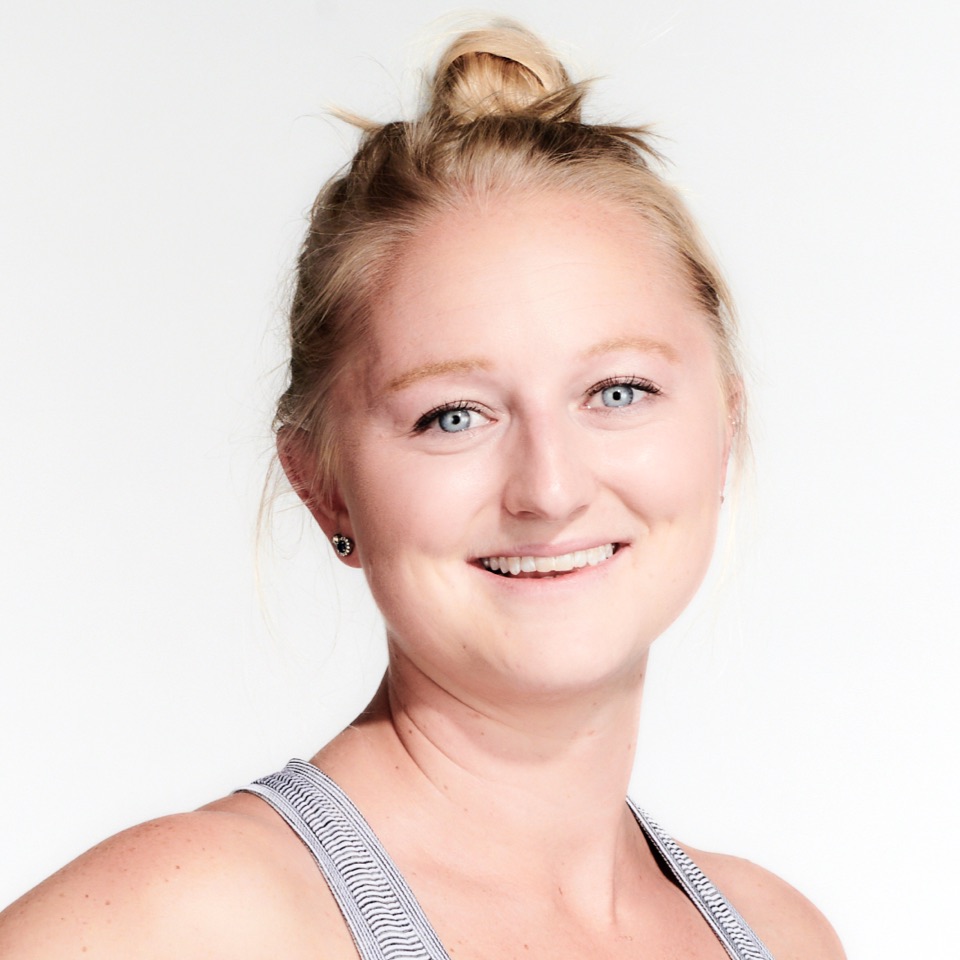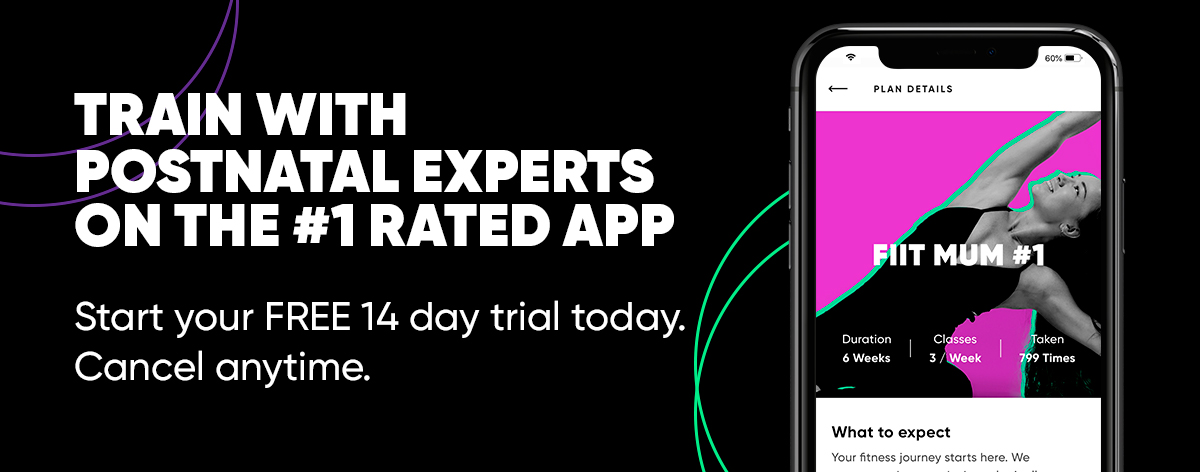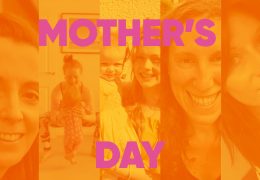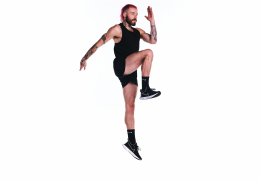Many women experience the ‘baby blues’. In fact we know that up to 80% of new mums feel ‘low’ or ‘irritable’ after giving birth. And as reported by the NHS, approximately 25% still suffer symptoms of postnatal depression a year after their little one is born.
So what takes you from being ‘blue’ to ‘depressed’? And what can you do about it?
I caught up with our postnatal trainer and mum of two, Lulu Adams, to talk about her experience with postnatal depression. Lulu bravely opened up to help other mums understand depression better, and find the confidence to ask for help when needed.
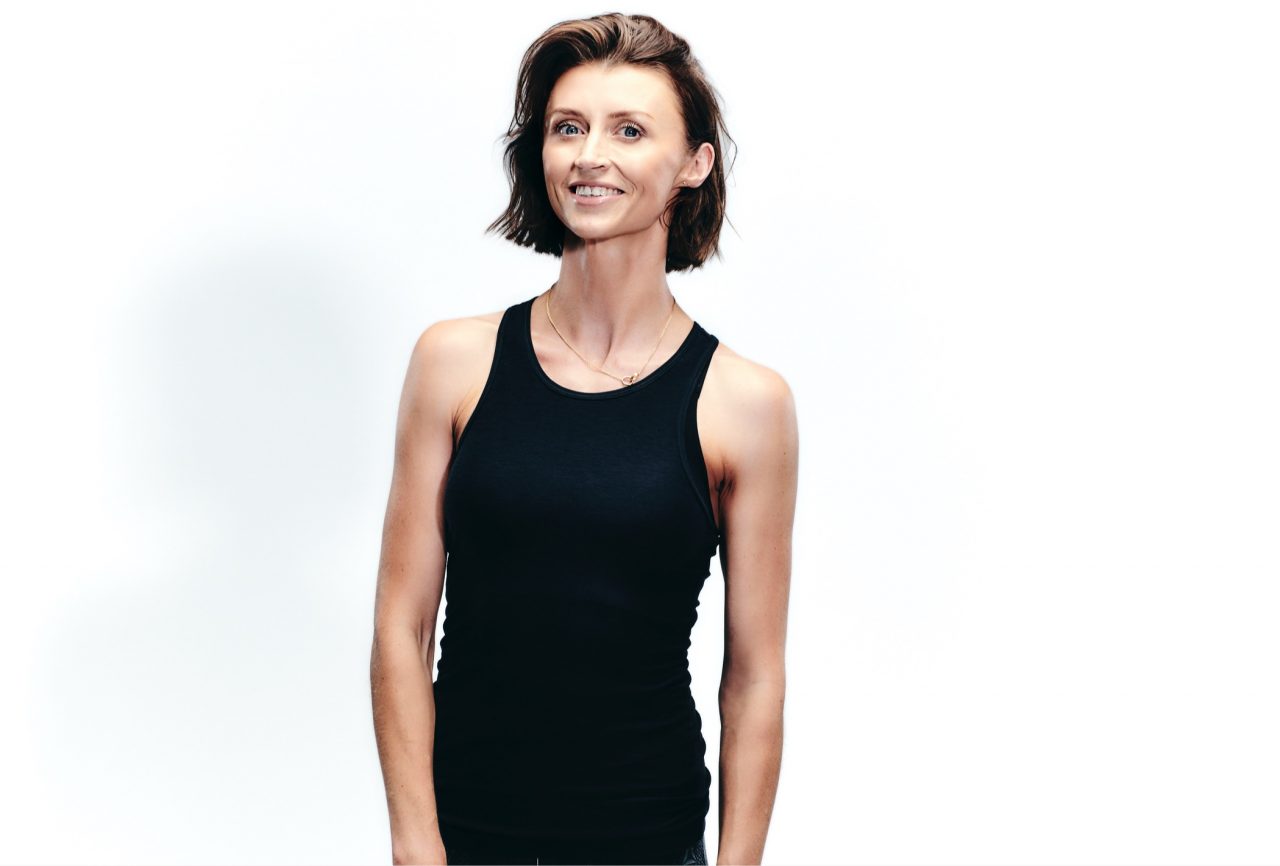
What made you think something wasn’t quite right?
I was on the verge of tears all day, every day. It was definitely more than just the ‘baby blues’. I needed to sleep whenever I could. I had this sense of fear — I was on edge and I felt adrenaline pumping through me to the point of feeling shaky and dizzy.
I also didn’t want to see anyone. I just wanted to get through each day and get to bed. And I was fed up with feeling so shit! I wanted to enjoy life. I knew on paper how lucky I was, and that this great life that I’d created was just slipping by me, every day.
So why did you seek help?
I started getting panic attacks and they tipped me over the edge. So I sought help when Effie was 4 months old and Willa had just turned two.
But you didn’t want to tell anyone at first. Why was that?
I thought social services would take my children away. I thought my husband would think I was a failure, or worse, blame himself.
I thought friends would think I was stupid and ungrateful. Surely I should be happy with a house in the country, a loving husband and two beautiful, happy daughters?
So who was the first person you told?
My husband, although reluctantly. I didn’t want to seem like I wasn’t happy, because I knew he’d feel like maybe it was his fault — which it wasn’t. But I knew he was worried about me, and hiding it from him just put an even bigger wedge between us and I hated it.
But in terms of actually finding help, I was scared to talk to the GP as I was worried about what might happen. So I turned to my midwife, because I’d created such a bond with her (both throughout my pregnancy with Willa and during Effie’s home birth). She felt like a safe, trustworthy person to speak to and she was brilliant.
I still kept it from a lot of people for a long time though. My friends didn’t find out for months. I just turned in on myself and went quiet on them. It also took me a while to tell my dad too, because I knew he would worry.
But it felt so much better once I did share it with them all.
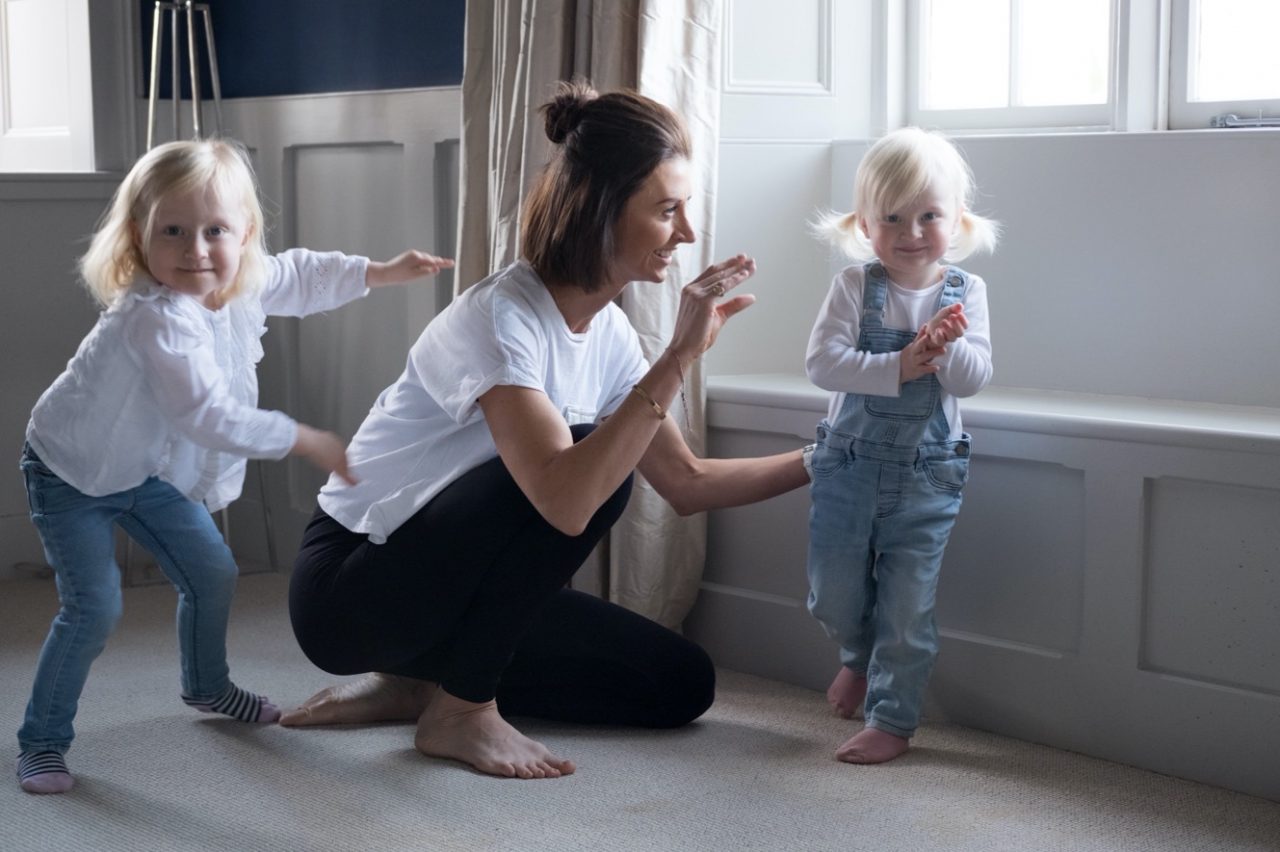
What does your day to day look like now? Are you still experiencing postnatal depression?
Yes, but I take medication for it. It’s something I was reluctant to do, especially as there’s so much stigma around antidepressants, but I am glad that I did.
I even find it easier to admit I suffer with anxiety than I do depression. I think there’s something that makes people recoil slightly when they hear the word ‘depression’. Whereas anxiety has become a bit of an overused, socially-acceptable phrase for feeling frazzled!
I tried to wean off the medication a few months ago, but I find the winter months very tricky and I felt low again. So I upped my dosage and have vowed to try again in the spring.
I don’t want to rely on medication forever. I want to try and get to the root cause of it all and develop better, internal coping strategies. I take CBD oil every day, I talk to a therapist, and I meditate or use breathwork practices to keep on top of symptoms on a daily basis.
There are mornings where I wake up and just acknowledge that I’ve got a panicky feeling. So I’m just a bit kinder to myself. I take things a bit slower and remember to breathe.
I know I’m not the only one who suffers with these things, and I think it’s amazing that we’re talking about mental health so much more, so that stigma is being broken down and people like me are more able to find help, in time.
If Lulu’s experiences ring true for you, reach out to us (and the other mums) in the Fiit Mum community. We’d love to hear your thoughts, and offer a safe space where you can ask questions —or just unload!
For this article, we also sought the advice of psychotherapist Amy Launder, and asked her to share her expertise on postnatal depression, and what you can do if you experience it.
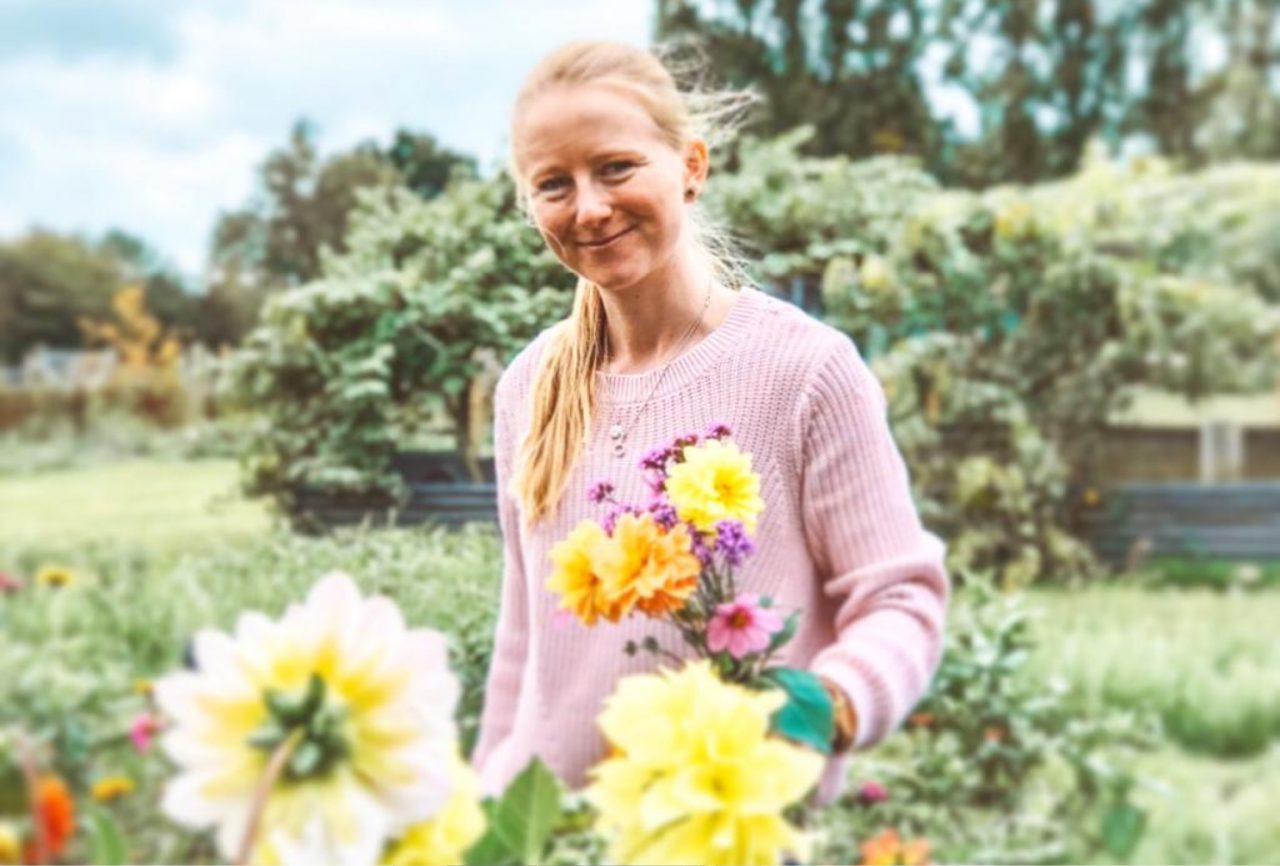
Amy, what’s the cause of postnatal depression?
Unfortunately, there’s not a definitive single cause of postnatal depression. If there was, I’m sure someone would have invented a pill to tackle it. But there are contributing factors, such as:
- Ongoing mental health problems or mental health conditions in the past
- Family history of postnatal depression
- Experienced trauma during childbirth
- Living in a negative and/or violent social or economic environment
- Being a refugee or asylum seeker
- History of abuse
- Poor social support
Many of these involve being put in a stressful or isolating position.
So how can you help yourself if you have it?
Throughout pregnancy and after giving birth, I suggest you:
- Develop a support network of friends, family or other new mums. It’s good to do this while you’re pregnant, as it can be difficult to network while you adjust to mum life.
- Accept help. It’s easy to fall into the trap of thinking that you have to do it all. But it’s actually better for you to do less than normal so you conserve your energy. Whenever someone offers to do your laundry, cook your meals, or bring your shopping over, I urge you to accept the help!
- Shower and get dressed, every single day. Even if you’re going to stay at home. Even if you just slip on a pair of leggings and a hoodie. Just get out of your pyjamas! It seems simple enough, but if you are in the throes of depression, hopping in the shower can seem like an impossible task.
- Sign up for mum and baby classes (like baby massage) and join local groups (like NCT). This is a great way to connect with other new mums and the professionals who work with them.
- Don’t stop taking antidepressants without the advice and support of a medical professional. It’s really important to discuss the risks and benefits of taking antidepressants through pregnancy and breastfeeding with your doctor. Especially as 7 out of 10 women who stop taking their antidepressants during their pregnancy, relapse.
If you are experiencing any symptoms of postnatal depression, know that there are other places you can turn to for help, advice or further information. We recommend you start with Mind, Home-Start, Pandas and the Breastfeeding Network. And as always, join our Fiit Mum community (especially if you didn’t find the time to network!)




